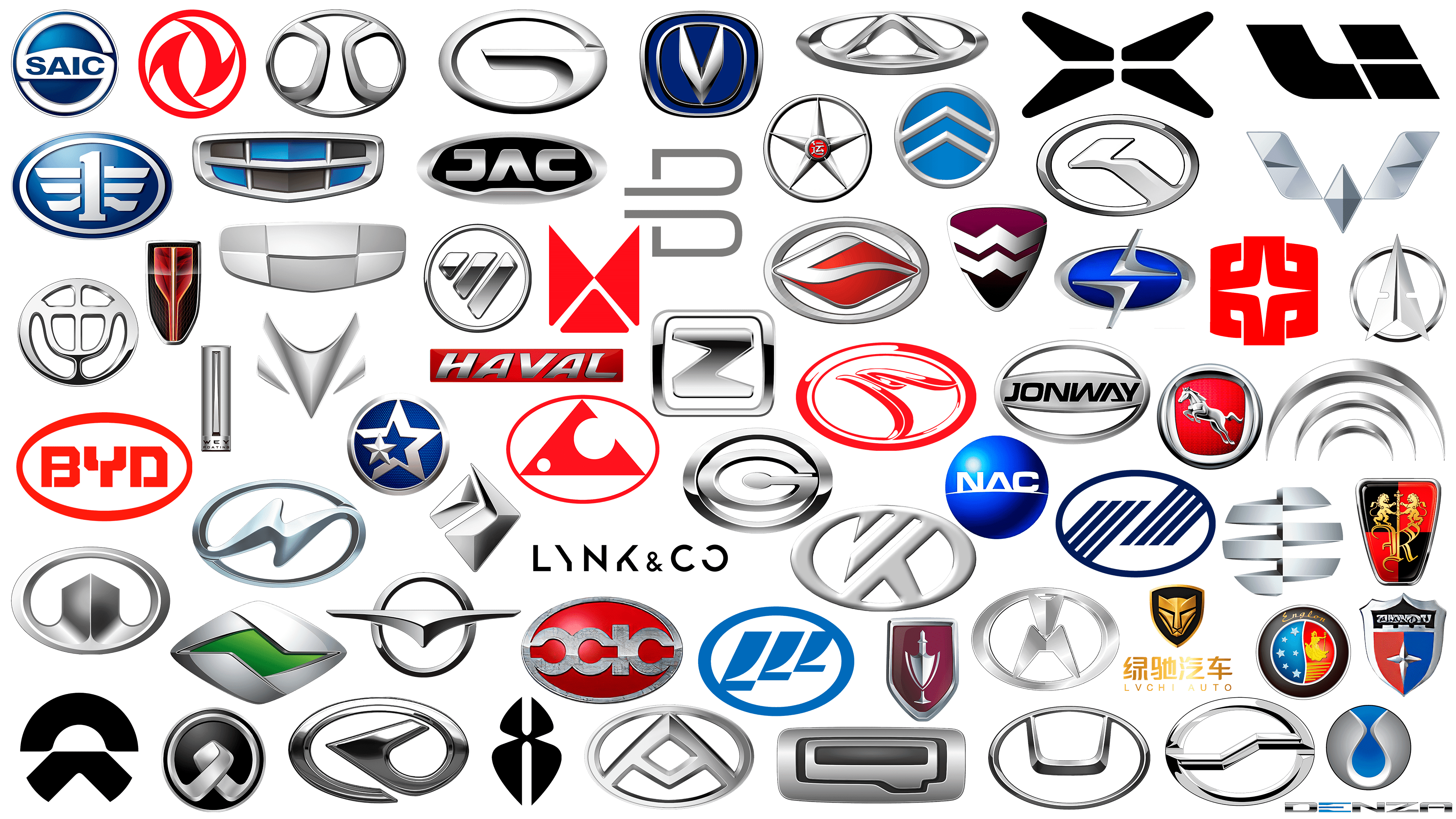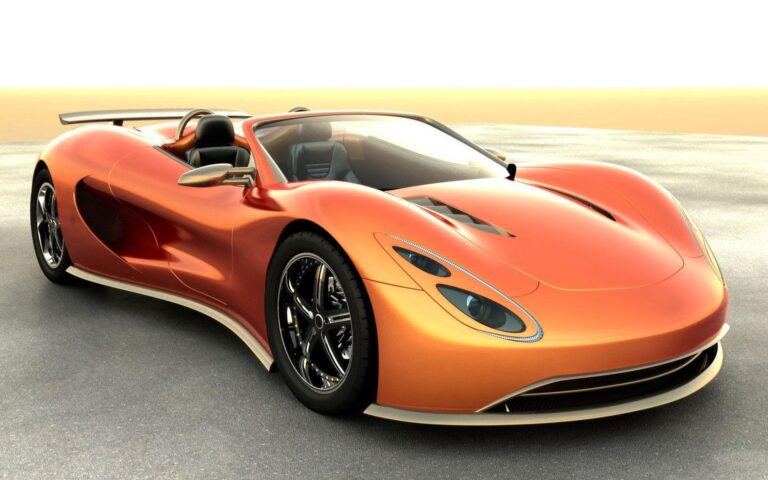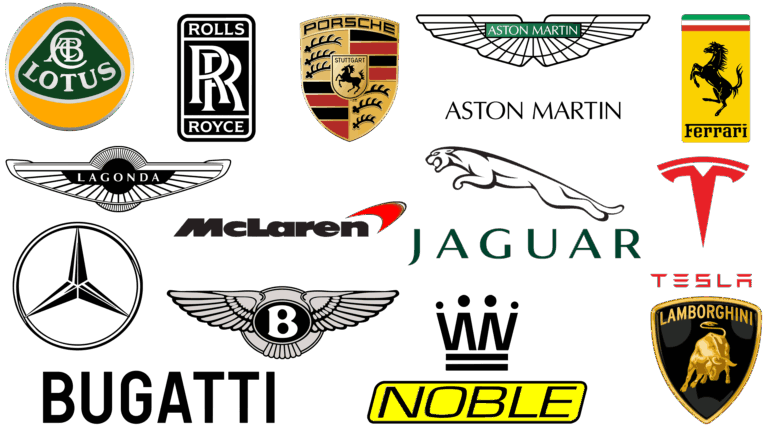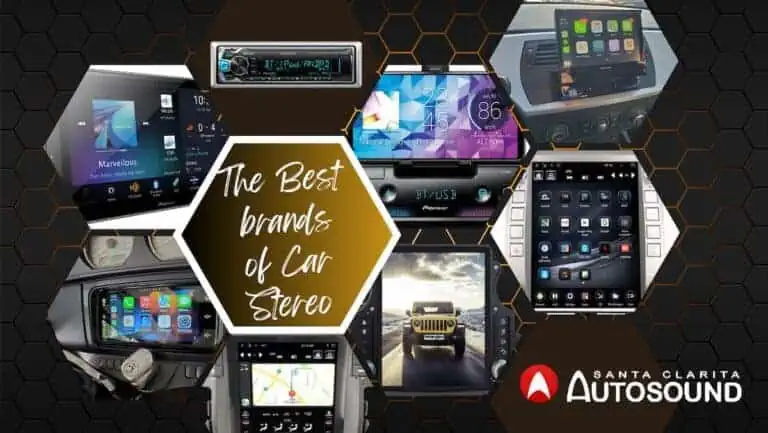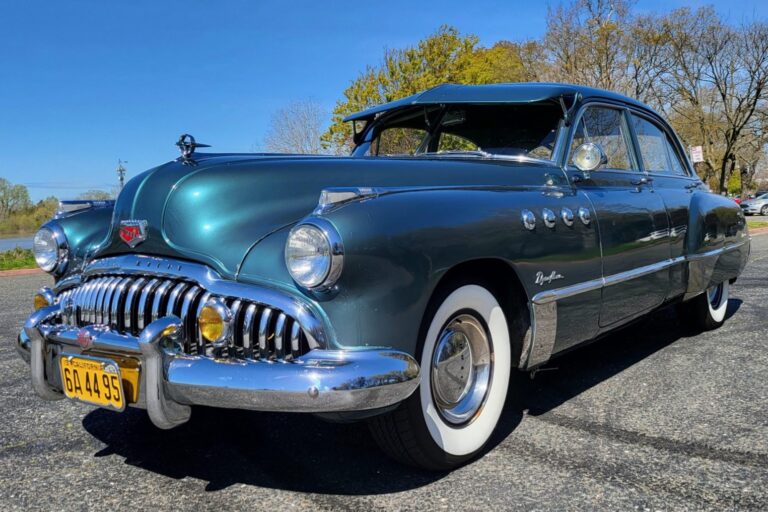Top 5 Car Brands: A Comprehensive Guide to Automotive Excellence
Top 5 Car Brands: A Comprehensive Guide to Automotive Excellence cars.truckstrend.com
The automotive industry is a dynamic landscape, constantly evolving with technological advancements, shifting consumer preferences, and fierce competition. For consumers, navigating this vast market to find the perfect vehicle can be a daunting task. Understanding the "Top 5 Car Brands" isn’t merely about knowing which companies sell the most cars; it’s about recognizing the pioneers, innovators, and stalwarts that consistently deliver quality, performance, value, and groundbreaking technology. These brands set industry benchmarks, influence design trends, and often represent the pinnacle of automotive engineering and consumer trust.
Identifying the top brands involves considering a multitude of factors: sales volume, brand reputation, reliability ratings, innovation in electric vehicles (EVs) and autonomous driving, safety features, customer satisfaction, and overall market influence. This comprehensive guide will delve into five of the most influential and highly regarded car brands in the world, offering insights into what makes them stand out, what to consider when buying from them, and how they shape the future of transportation.
Top 5 Car Brands: A Comprehensive Guide to Automotive Excellence
1. Toyota: The Epitome of Reliability and Value
Key Information: Hailing from Japan, Toyota Motor Corporation has consistently ranked among the world’s largest automakers by sales volume. Founded in 1937, Toyota’s philosophy, often encapsulated by "The Toyota Way," emphasizes continuous improvement (Kaizen) and respect for people. This approach has led to a reputation for unparalleled reliability, durability, and manufacturing efficiency.
Benefits: Toyota vehicles are synonymous with longevity and low maintenance costs. Their strong resale value is a testament to their enduring quality. Toyota has been a pioneer and leader in hybrid technology, offering an extensive range of fuel-efficient models. Their diverse lineup caters to a broad audience, from compact sedans to robust trucks and family-friendly SUVs.
How to Choose and Important Considerations: When considering a Toyota, focus on your primary needs:
- Reliability: Almost any Toyota will deliver here.
- Fuel Efficiency: Look into their extensive hybrid lineup (Prius, Camry Hybrid, RAV4 Hybrid, Highlander Hybrid).
- Practicality: Models like the RAV4, Highlander, and Sienna offer excellent utility for families.
- Off-Road Capability: The Tacoma and 4Runner are legendary for their ruggedness.
- Maintenance: Toyota parts are readily available and generally affordable, contributing to lower long-term ownership costs.
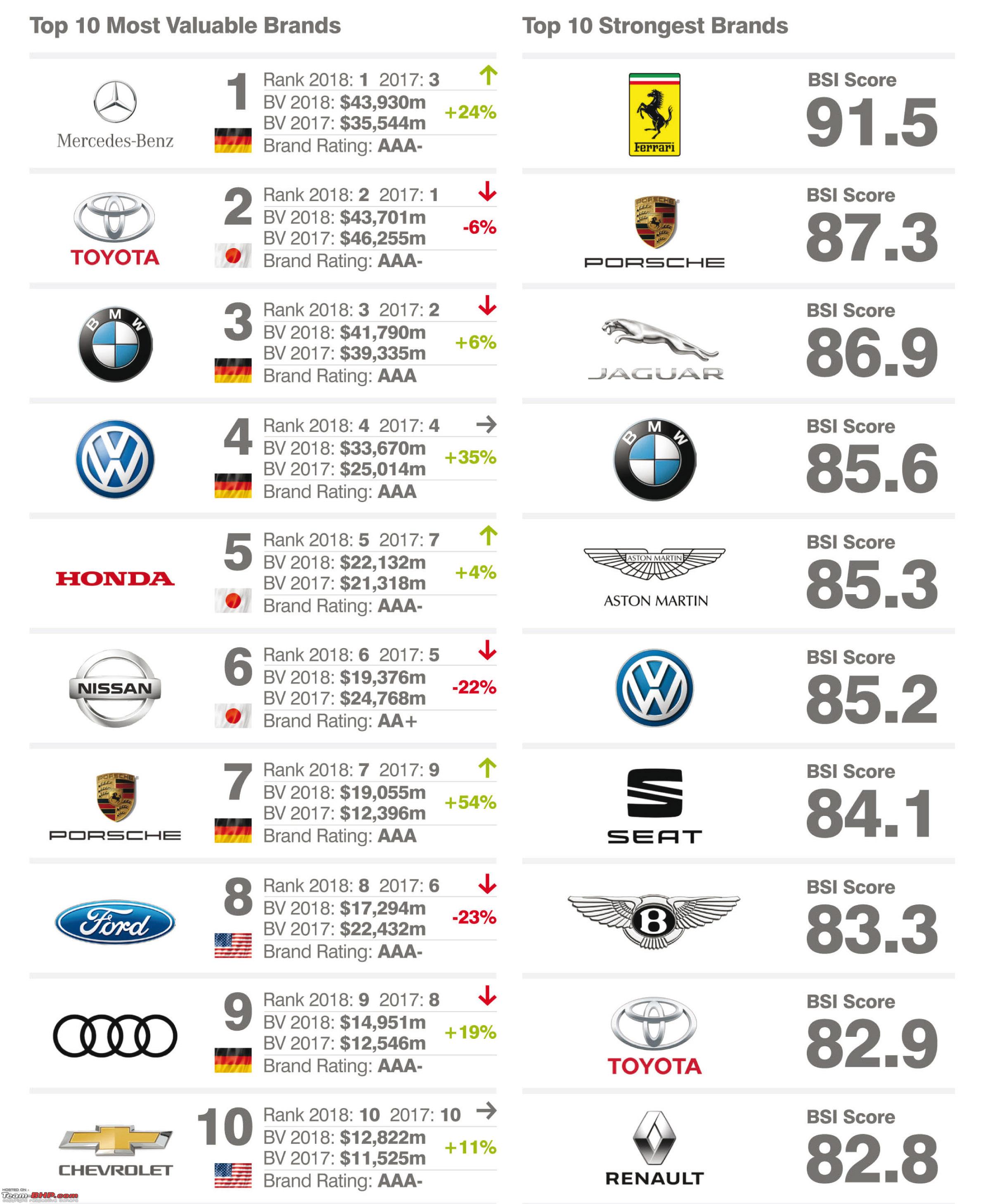
Types/Categories: Toyota offers a full spectrum: compact cars (Corolla, Yaris), mid-size sedans (Camry), SUVs of all sizes (RAV4, Highlander, Sequoia, 4Runner), minivans (Sienna), and a dominant line of pickup trucks (Tacoma, Tundra). They also have a luxury division, Lexus, which mirrors their reliability in the premium segment.

Tips:
- Test drive multiple models: While all Toyotas are reliable, their driving dynamics can vary.
- Consider a Certified Pre-Owned (CPO) Toyota: This offers excellent value with extended warranty coverage.
- Explore their hybrid options: Even non-hybrid models are fuel-efficient, but Toyota’s hybrids are truly class-leading.

Potential Challenges/Solutions: While generally praised, some critics find Toyota’s designs conservative or their driving experience less "engaging" than some European rivals. Solution: Toyota has been addressing this with more daring designs (e.g., the new Prius, Crown) and sportier GR performance variants.
2. Mercedes-Benz: The Quintessence of Luxury and Innovation
Key Information: Originating from Germany, Mercedes-Benz is one of the oldest and most prestigious automotive brands in the world, tracing its roots back to the invention of the automobile itself by Karl Benz in 1886. Part of the Daimler AG group, Mercedes-Benz represents luxury, technological sophistication, and engineering excellence.
Benefits: Owning a Mercedes-Benz is often a statement of prestige and success. Their vehicles are renowned for their opulent interiors, cutting-edge technology (including advanced infotainment and driver-assistance systems), superior ride comfort, and robust safety features. The brand offers a wide range of vehicles, from compact sedans to high-performance AMG models and luxurious SUVs, all embodying a distinct blend of elegance and power.
How to Choose and Important Considerations:
- Budget: Mercedes-Benz vehicles come with a premium price tag, and maintenance costs can be higher than mass-market brands.
- Technology Integration: Be prepared for a feature-rich, sometimes complex, infotainment system. Spend time learning its functionalities.
- Driving Experience: Decide if you prioritize ultimate comfort (E-Class, S-Class) or sportier dynamics (C-Class, AMG models).
- Resale Value: While strong in the luxury segment, depreciation is generally higher than for mass-market brands like Toyota.
Types/Categories: Mercedes-Benz boasts an extensive lineup: compact luxury (A-Class, CLA, GLA), executive sedans (C-Class, E-Class, S-Class), a comprehensive range of SUVs (GLA, GLB, GLC, GLE, GLS, G-Class), high-performance AMG models, and a growing portfolio of electric vehicles under the EQ sub-brand.
Tips:
- Leasing can be a good option: Given the rapid pace of technological updates and higher depreciation, leasing a Mercedes can keep you in the latest models.
- Understand service intervals and costs: Regular maintenance by certified technicians is crucial for preserving your Mercedes.
- Explore the AMG line for performance: If driving dynamics are a priority, the AMG models offer exhilarating experiences.
Potential Challenges/Solutions: High purchase price and potentially expensive maintenance are common considerations. Solution: Regular preventative maintenance is key. Consider extended warranties or service packages. The complexity of some features might require a learning curve, but the user experience is generally refined.
3. BMW: The Ultimate Driving Machine
Key Information: Bayerische Motoren Werke AG, or BMW, is another German automotive giant, established in 1916. Initially an aircraft engine manufacturer, BMW transitioned to motorcycles and then automobiles, famously adopting "The Ultimate Driving Machine" as its slogan. BMW is celebrated for its focus on driving dynamics, performance, and luxurious sportiness.
Benefits: BMW cars are engineered for drivers who appreciate a responsive chassis, powerful engines, and precise steering. They offer a unique blend of luxury and performance, with well-crafted interiors, advanced technology, and distinctive design. BMW has also been at the forefront of automotive innovation, particularly in efficient dynamics and electric vehicle development.
How to Choose and Important Considerations:
- Driving Style: BMWs are for those who enjoy driving. Test drive extensively to feel the difference.
- Model Series: The "3 Series" is their iconic sport sedan, while "X" models denote SUVs, and higher numbers (e.g., 5 Series, 7 Series) generally indicate larger, more luxurious vehicles.
- Maintenance: Similar to Mercedes, BMWs require specialized maintenance, which can be more expensive.
- Technology: BMW’s iDrive infotainment system, while powerful, can take some getting used to.
Types/Categories: BMW’s range includes compact sedans (2 Series, 3 Series), executive sedans (5 Series, 7 Series, 8 Series), a comprehensive line of "X" series SUVs (X1 to X7), performance-oriented "M" models, and a rapidly expanding "i" sub-brand for electric vehicles (i4, iX, i7).
Tips:
- Consider the M Sport package: Even on non-M models, this package enhances driving feel and aesthetics.
- Research specific engine options: BMW offers a variety of powerful and efficient engines.
- Factor in tire costs: BMWs often come with performance tires that can be more expensive to replace.
Potential Challenges/Solutions: Stiffer rides in some models and higher maintenance costs are common points. Solution: Adaptive suspension options can mitigate ride stiffness. Finding a reputable independent BMW specialist can help manage maintenance costs.
4. Ford: The American Icon of Utility and Innovation
Key Information: Founded by Henry Ford in 1903, Ford Motor Company revolutionized the automotive industry with the introduction of the assembly line and the Model T, making cars accessible to the masses. An American multinational, Ford has a deep-rooted heritage in utility vehicles, particularly pickup trucks, and is increasingly focused on electric vehicles and autonomous technology.
Benefits: Ford is known for building rugged, capable vehicles, particularly its F-Series pickup trucks, which have been the best-selling vehicles in America for decades. They offer a strong balance of practicality, technology, and value across their range of SUVs and trucks. Ford has also made significant strides in electric vehicle innovation with models like the Mustang Mach-E and F-150 Lightning.
How to Choose and Important Considerations:
- Purpose: Are you hauling, off-roading, or commuting? Ford likely has a vehicle designed for that.
- Truck Needs: If you’re considering an F-150, understand payload, towing capacity, and trim levels.
- EV Adoption: Ford is a major player in the EV space; consider their electric offerings for future-proofing.
- Connectivity: Ford’s SYNC infotainment system is generally user-friendly and well-integrated.
Types/Categories: Ford’s lineup is heavily focused on trucks and SUVs: the legendary F-Series pickups (F-150, Super Duty), popular SUVs (Explorer, Escape, Bronco, Expedition), and iconic performance cars (Mustang). Their passenger car lineup has largely been phased out in North America, replaced by more versatile SUVs.
Tips:
- Explore the various F-150 trims: They range from basic work trucks to luxurious family haulers.
- Don’t overlook the Bronco and Bronco Sport: These offer excellent off-road capability.
- Test drive their EVs: The Mustang Mach-E offers a compelling electric SUV experience, and the F-150 Lightning brings electric power to the truck segment.
Potential Challenges/Solutions: Some models have faced reliability concerns in the past (e.g., certain transmissions). Solution: Ford has made significant efforts to improve quality control and addresses issues promptly through recalls and updates. Research specific model year reviews.
5. Tesla: The Electric Vehicle Pioneer
Key Information: Founded in 2003 by Martin Eberhard and Marc Tarpenning, with Elon Musk becoming a significant investor and chairman in 2004, Tesla, Inc. disrupted the automotive industry by exclusively focusing on electric vehicles and advanced battery technology. Headquartered in Austin, Texas, Tesla has rapidly grown to become one of the most valuable automotive companies globally, leading the charge in EV adoption and autonomous driving development.
Benefits: Tesla cars offer unparalleled electric range (in many models), blistering acceleration, access to the industry’s most robust fast-charging network (Superchargers), and over-the-air software updates that continuously improve features and performance. Their minimalist interiors, large central touchscreens, and advanced Autopilot/Full Self-Driving (FSD) capabilities define a futuristic driving experience.
How to Choose and Important Considerations:
- Charging Infrastructure: While Superchargers are extensive, ensure you have convenient home charging options.
- Service Network: Tesla’s service centers are growing but may not be as ubiquitous as traditional dealerships. Mobile service is available.
- Build Quality: While improving, some early models had inconsistent panel gaps or interior finishes. Inspect thoroughly.
- Software Updates: Embrace the concept of a car that evolves and improves over time via software.
Types/Categories: Tesla’s current lineup includes the compact sedan Model 3, the popular crossover SUV Model Y, the flagship luxury sedan Model S, and the luxury SUV Model X with its distinctive "falcon wing" doors. The Cybertruck and Semi are also in production/development.
Tips:
- Understand range anxiety: Plan longer trips around Supercharger locations.
- Familiarize yourself with the touchscreen interface: Almost all car functions are controlled through it.
- Consider a home charger (Wall Connector): This is essential for convenient daily charging.
Potential Challenges/Solutions: Initial purchase price can be high, and reliance on a single large screen for controls can be distracting for some. Solution: Federal and state EV incentives can offset the cost. Take a long test drive to get comfortable with the interface. Build quality has steadily improved with newer models and production facilities.
Practical Advice and Actionable Insights for Car Buyers
Choosing a car, especially from these top-tier brands, requires more than just brand loyalty. Here’s some practical advice:
- Define Your Needs: What’s your primary use (commuting, family, hauling, performance)? What’s your budget (purchase, insurance, maintenance, fuel/charging)?
- Research Extensively: Don’t rely solely on brand reputation. Look up specific model reviews, reliability ratings (e.g., Consumer Reports, J.D. Power), and owner forums.
- Test Drive Thoroughly: Drive on different road types, experience various features, and bring family members who will also use the car.
- Consider Total Cost of Ownership: Factor in insurance, maintenance, fuel/charging, and depreciation, not just the sticker price.
- New vs. Used vs. CPO: Certified Pre-Owned (CPO) programs from these brands can offer significant savings with added peace of mind.
- Future-Proofing: Consider electric vehicles (EVs) as a viable option, especially with the rapid expansion of charging infrastructure and improving range.
- Negotiate: Don’t be afraid to negotiate the price, even for popular models.
Summary Table of Top 5 Car Brands
| Brand Name | Primary Strengths | Typical Vehicle Types | Popular Models (Examples) | Approximate Starting Price Range (Popular Models, USD) | Target Audience |
|---|---|---|---|---|---|
| Toyota | Unmatched Reliability, High Resale Value, Fuel Efficiency, Diverse Lineup | Sedans, SUVs, Trucks, Hybrids | Camry, RAV4, Corolla, Tacoma, Highlander | $22,000 – $45,000 | Value-conscious, practical, family-oriented, reliability-seekers |
| Mercedes-Benz | Luxury, Prestige, Advanced Technology, Ride Comfort, Safety | Luxury Sedans, SUVs, Coupes, Performance (AMG), EVs | C-Class, E-Class, GLC, GLE, A-Class | $45,000 – $80,000+ | Affluent, status-conscious, technology enthusiasts, comfort-focused |
| BMW | Driving Dynamics, Performance, Sporty Luxury, Innovation | Luxury Sedans, SUVs, Coupes, Performance (M), EVs | 3 Series, X3, 5 Series, X5, i4 | $40,000 – $75,000+ | Enthusiast drivers, performance-oriented luxury buyers, tech-savvy |
| Ford | Utility, Capability (Trucks/SUVs), American Heritage, EV Innovation | Trucks, SUVs, Performance Cars, EVs | F-150, Explorer, Escape, Mustang, Mach-E | $28,000 – $65,000+ | Practical, working professionals, families, truck/SUV buyers, EV early adopters |
| Tesla | Electric Vehicle Range/Performance, Charging Network, Autonomy Tech | EVs (Sedans, SUVs, Trucks) | Model 3, Model Y, Model S, Model X | $40,000 – $90,000+ | Tech-forward, environmentally conscious, performance-seeking, early adopters |
Note: Price ranges are approximate starting MSRPs for popular models and can vary significantly based on trim, options, and market conditions.
Frequently Asked Questions (FAQ)
Q1: What makes a car brand "top tier"?
A1: A "top tier" car brand typically excels in multiple areas, including sales volume, brand reputation, reliability, technological innovation (especially in EVs and safety), customer satisfaction, and overall market influence. They often set industry standards.
Q2: Are cars from top brands more expensive to maintain?
A2: Generally, luxury brands like Mercedes-Benz and BMW tend to have higher maintenance costs due to specialized parts, labor, and technology. Mass-market brands like Toyota and Ford often have more affordable and widely available parts and service. Tesla’s maintenance needs are different due to its electric powertrain but can still incur costs for tires, brakes, and specialized repairs.
Q3: Which of these brands is best for reliability?
A3: Toyota consistently ranks at the top for reliability and durability, known for its low cost of ownership and longevity. Honda (not on this specific list but also a top contender) also shares this reputation.
Q4: Should I buy an electric vehicle (EV) from one of these brands?
A4: Absolutely. All five brands are heavily investing in EVs. Tesla is a pure EV play, while Toyota, Mercedes-Benz, BMW, and Ford offer excellent EV options with the backing of their long-standing manufacturing expertise and dealer networks. Consider range, charging infrastructure, and your daily driving needs.
Q5: How important is brand reputation when buying a car?
A5: Brand reputation is very important as it often reflects consistent quality, customer service, and long-term reliability. A strong brand reputation can also contribute to better resale value. However, always research specific models, as even top brands can have individual models with varying performance or reliability records.
Conclusion
The automotive industry is a vibrant ecosystem where innovation, tradition, and consumer demand constantly reshape the landscape. The five brands explored – Toyota, Mercedes-Benz, BMW, Ford, and Tesla – represent diverse facets of automotive excellence, from unwavering reliability and mass-market utility to unparalleled luxury, driving performance, and groundbreaking electric innovation. Understanding their core strengths, typical offerings, and unique considerations empowers consumers to make informed decisions that align with their lifestyles and preferences.
As technology continues to advance and environmental consciousness grows, these top brands will undoubtedly continue to evolve, pushing the boundaries of what’s possible on four wheels. Whether you seek the ultimate in practicality, the pinnacle of luxury, the thrill of performance, or the cutting edge of electrification, these industry leaders offer compelling choices that promise to deliver a satisfying driving experience for years to come.
